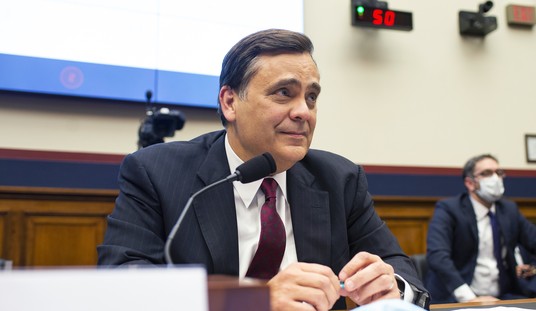
It sure looks like George Washington University Law Professor Jonathan Turley was correct when he said the presiding judge in the Flynn Case, Judge Emmet Sullivan, was not going to go quietly in the night. Politico’s Kyle Cheney reports that Sullivan has appointed retired judge to fight the DOJ’s motion to dismiss the case against Gen. Michael Flynn.
BREAKING: Judge SULLIVAN has appointed retired judge to argue against the government's motion to dismiss the charge against Flynn. pic.twitter.com/OUGyAbNcIB
— Kyle Cheney (@kyledcheney) May 13, 2020
According to The Washington Post, Sullivan has asked retired New York federal Judge John Gleeson to determine if Flynn “should face a contempt hearing for perjury after he pleaded guilty to a crime for which he now claims to be innocent.”
Additionally, Gleeson has been asked to make a non-binding recommendation whether to order Flynn, who pleaded guilty to a crime and now claims innocence, to explain why he should not be found in criminal contempt for lying under oath in his guilty plea.
Sullivan wrote in his order:
The Court exercises its inherent authority to appoint The Honorable John Gleeson (Ret.) as amicus curiae to present arguments in opposition to the government’s Motion to Dismiss.
It is further ORDERED that amicus curiae shall address whether the Court should issue an Order to Show Cause why Mr. Flynn should not be held in criminal contempt for perjury.
The Honorable John Gleeson and two others wrote an op-ed which appeared on Monday in The Washington Post entitled, “The Flynn case isn’t over until the judge says it’s over.”
The Justice Department’s move to dismiss the prosecution of former national security adviser Michael Flynn does not need to be the end of the case — and it shouldn’t be. The Justice Department has made conflicting statements to the federal judge overseeing the case, Emmet G. Sullivan. He has the authority, the tools and the obligation to assess the credibility of the department’s stated reasons for abruptly reversing course.
The department’s motion to dismiss the Flynn case is actually just a request — one that requires “leave of the court” before it is effective. The executive branch has unreviewable authority to decide whether to prosecute a case. But once it secures an indictment, the proceedings necessarily involve the judicial branch. And the law provides that the court — not the executive branch — decides whether an indictment may be dismissed. The responsible exercise of that authority is particularly important here, where a defendant’s plea of guilty has already been accepted. Government motions to dismiss at this stage are virtually unheard of.
Sounds impartial, doesn’t he?
Both Sullivan and Gleeson, being creatures of the swamp, disagree with the DOJ’s request to dismiss the case and they’re trying to revive it.
This action comes on the heels of Tuesday’s order in which Sullivan states he will accept amicus curiae (friend of the court) submissions in the Flynn case. In other words, Sullivan, a Clinton appointee and an activist judge, will continue to do the deep state’s bidding. I posted about this story here.
Judge Sullivan has shown repeatedly he is far too biased to act fairly in this case. This is an abuse of power. He, Gleeson and the Watergate Prosecutors are trying to weaponize the court system against Gen. Flynn.
In the Twitter thread which follows, Turley discusses this new development which he finds disturbing. He writes:
Considering a new charge based on Flynn’s effort to withdraw his plea. Consider the implications for many cases where defendants seek to withdraw pleas due to prosecutorial abuse. It would create a threat of a judicial charge even when prosecutors agree with defendants.”
He is now allowing third parties to make arguments in a criminal case on an unopposed motion…there comes a point where the Court appears too invested in the punishment of a defendant and too active in creating alternatives to dismissal.
Judge Sullivan has now appointed a retired judge to look into “whether the Court should issue an Order to Show Cause why Mr. Flynn should not be held in criminal contempt for perjury.” Thus, the court is not only considering denying an uncontested motion for dismissal but…
— Jonathan Turley (@JonathanTurley) May 14, 2020
Judge Sullivan was previously criticized for suggesting that Flynn could be charged with treason. He is now allowing third parties to make arguments in a criminal case on an unopposed motion. In addition, he is exploring a charge that he might be able to bring against Flynn…
— Jonathan Turley (@JonathanTurley) May 14, 2020
…there comes a point where the Court appears too invested in the punishment of a defendant and too active in creating alternatives to dismissal. As a criminal defense attorney, I find these moves unnerving, particularly when prosecutorial abuse has been raised by DOJ and others
— Jonathan Turley (@JonathanTurley) May 14, 2020













Join the conversation as a VIP Member